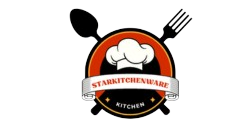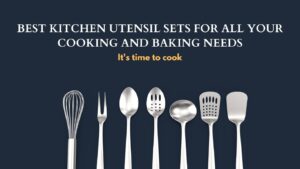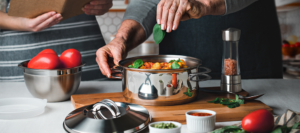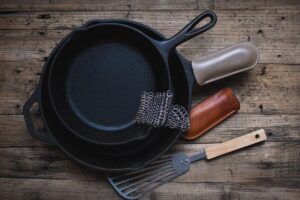Are you a cooking enthusiast who values both taste and safety? Then, listen up! We’re about to unveil the truth behind an essential tool in every kitchen: hard anodized cookware.
Its sleek appearance, durability, and nonstick properties make it increasingly popular among home cooks. But here’s the burning question: is hard anodized cookware safe for everyday use?
Join us on this riveting journey as we dive deep into the facts, myths, and scientific findings to uncover the ultimate truth about your beloved pots and pans. Get ready to have your culinary world turned upside down – it’s time to separate fact from fiction once and for all!
What is Hard Anodized Cookware?
Hard anodized cookware is made by electrochemically treating the surface of aluminum cookware. This creates a more complex, durable surface resistant to wear and tear. Hard anodized cookware is also less likely to stick to food, making it a popular choice for cooking.
However, there are some concerns about the safety of hard anodized cookware. The electrochemical process to create the hard anodized surface can release harmful chemicals into the environment. And, while the hard anodized exterior is more resistant to sticking, it can still be scratched or chipped, casting aluminum into food.
So, is hard anodized cookware really safe? The jury is still out. Some experts believe that the benefits of hard anodized cookware outweigh the risks, while others believe the chances are too great. If you’re concerned about the safety of hard anodized cookware, consider using another type of cookware instead.
Pros and Cons of Hard Anodized Cookware
There are many different materials to choose from when it comes to cookware. Hard anodized cookware is one option that has gained popularity in recent years. But is it safe? Here, we look at the pros and cons of hard anodized cookware to help you make an informed decision.
Hard anodized cookware is made by submerging aluminum in a chemical bath and running an electric current through it. This process creates a durable, nonstick surface less likely to scratch or chip than traditional aluminum cookware.
One of the main benefits of hard anodized cookware is that it is non-reactive. This means it won’t leach aluminum into your food, even if you cook acidic foods like tomatoes or lemons. Hard anodized cookware is also less likely to stain than other types of cookware.
Another advantage of hard anodized cookware is that it conducts heat evenly and efficiently. This means your food will be cooked evenly, with no hot spots. Hard anodized cookware is also oven-safe so you can use it for stovetop and oven cooking.
However, there are some disadvantages to hard anodized cookware as well. One downside is that it can be more expensive than other types of cookware.
Additionally, repeated use and washing can eventually wear down the nonstick surface. Finally, hard anodized cookware is not dishwasher-safe and must be hand washed to maintain its nonstick properties.
Overall, hard anodized cookware has some great benefits, making it a popular choice among cooks. It’s non-reactive, conducts heat evenly, and resists staining.
However, it can be more expensive than other cookware, and the nonstick surface will eventually wear down over time. As with any cookware, it’s essential to consider your needs and preferences when deciding what to use in your kitchen.
Is Hard Anodized Cookware Safe to Use?
If you’re like most people, you may have a few questions about hard anodized cookware. Is it safe to use? What are the benefits? And what are the downsides?
Here’s a detailed look at hard anodized cookware, so you can decide if it’s the right choice for your kitchen.
Hard anodized cookware is made by dipping aluminum cookware into an acid bath. This process creates a more complex, durable surface that is less likely to scratch and stain.
There are a few potential concerns with hard anodized cookware. First, it may leach small amounts of aluminum into food. Second, the nonstick coating on some hard anodized cookware can break down over time and release harmful chemicals into food.
However, these concerns are relatively minor compared to the benefits of hard anodized cookware. Hard anodized cookware is highly durable and easy to clean. It also conducts heat well and is safe to use with metal utensils. Hard anodized cookware is an excellent option for busy cooks who want hassle-free cooking performance.
Are there Alternatives to Hard Anodized Cookware?
There are many different materials to choose from when it comes to cookware. Hard anodized cookware is one option, but it is not the only option. There are a number of alternatives to hard anodized cookware that can be just as safe and effective.
One alternative to hard anodized cookware is stainless steel. Stainless steel is a viral material for cookware because it is non-reactive, durable, and easy to clean. It is also a good choice for those looking for an alternative to hard anodized cookware because it is less likely to scratch or chip.
Another alternative to hard anodized cookware is enameled cast iron. Enameled cast iron is an excellent choice for cooking because it retains heat well and distributes heat evenly.
It is also non-reactive, so that it won’t leach flavors or chemicals into your food. Enameled cast iron is also easy to clean and maintain.
Another alternative to hard anodized cookware is ceramic-coated cookware. Ceramic-coated cookware is made of metal coated with a layer of ceramic. This type of cookware is non-reactive, durable, and easy to clean. It also heats evenly and retains heat well.
Care and Maintenance for Hard Anodized Cookware
Hard anodized cookware is a popular choice for many home cooks because it is durable and easy to care for. However, you should know a few things about hard anodized cookware before you use it.
First, it is essential to note that hard anodized cookware is not nonstick. This means you will need to use cooking oil or spray when using this cookware. Secondly, hard anodized cookware can be scratched easily, so be careful when using metal utensils. This cookware should not be placed in the dishwasher because the detergent can damage the finish.
To clean hard anodized cookware, wash it with soap and water. You can also use a gentle scrubber if there are any stubborn spots. Be sure to dry the cookware thoroughly before storing it.
Conclusion
In conclusion, hard anodized cookware is an excellent choice for your kitchen if you want non-toxic and durable cooking equipment.
Although there are some potential issues to be aware of when using this type of cookware, most of them can easily be avoided with proper care and maintenance.
With its many benefits, it’s no wonder why hard-anodized cookware has become such a popular option among health-conscious cooks.





